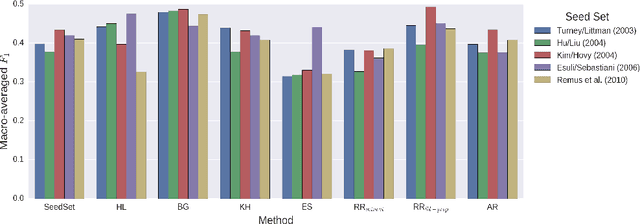Generating Sentiment Lexicons for German Twitter
Paper and Code
Oct 31, 2016



Despite a substantial progress made in developing new sentiment lexicon generation (SLG) methods for English, the task of transferring these approaches to other languages and domains in a sound way still remains open. In this paper, we contribute to the solution of this problem by systematically comparing semi-automatic translations of common English polarity lists with the results of the original automatic SLG algorithms, which were applied directly to German data. We evaluate these lexicons on a corpus of 7,992 manually annotated tweets. In addition to that, we also collate the results of dictionary- and corpus-based SLG methods in order to find out which of these paradigms is better suited for the inherently noisy domain of social media. Our experiments show that semi-automatic translations notably outperform automatic systems (reaching a macro-averaged F1-score of 0.589), and that dictionary-based techniques produce much better polarity lists as compared to corpus-based approaches (whose best F1-scores run up to 0.479 and 0.419 respectively) even for the non-standard Twitter genre.
 Add to Chrome
Add to Chrome Add to Firefox
Add to Firefox Add to Edge
Add to Edge